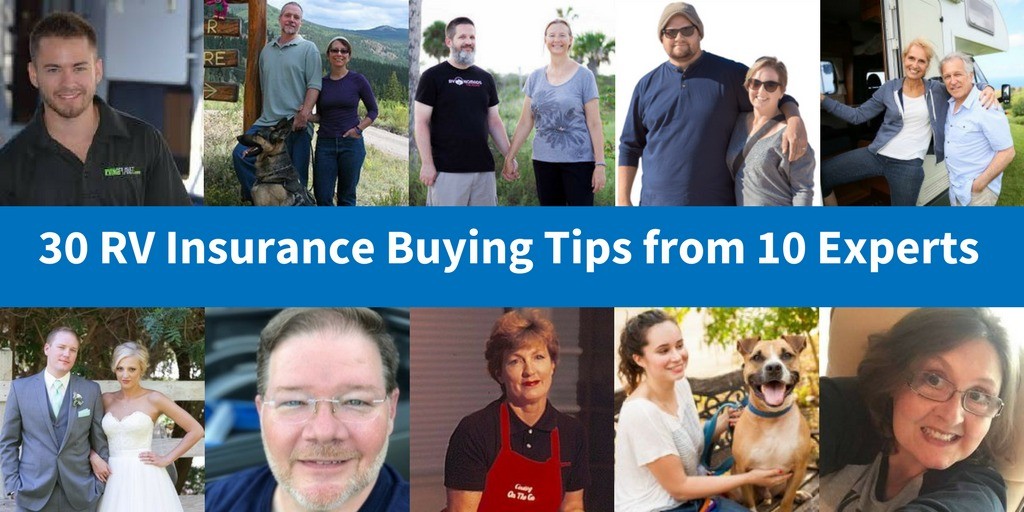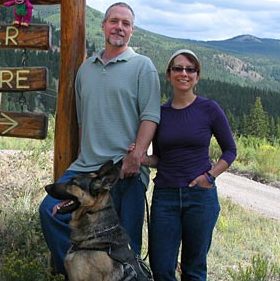An RV is more than just a vehicle. It’s a home on wheels. During your travels, many unexpected things can happen. That’s why it’s essential to have RV insurance.
There are so many offers out there that it is difficult to choose the right one for you. There are many factors that you must take into consideration:
- Are you living and traveling full-time in your RV or are you just an occasional RVer that goes camping on holidays and weekends?
- How old is your RV?
- Does your RV qualify for certain premium plans?
- How can you negotiate with the insurer so you can get a more affordable plan?
I know that you always start something new with positive thoughts thinking that nothing bad will happen to you but things happen, good or bad. That’s life. It’s important how we react to them. Dealing with situations like robbery, accident or fire, can be even more difficult if you don’t have a proper insurance for your RV.
To make sure that you get the best value for your money, you need to do in-depth research and study all the offers that you can find. All these can be confusing and time-consuming.
That is why we reached out to ten experienced RVers and asked them:
What are your top 3 tips for choosing the best RV Insurance?
Find out what they had to say in the post below.
Kerensa & Brandon – RV to Freedom

Getting the right insurance for your RV is an important step in RV ownership. You want to make sure you have the coverage that fits your needs whether you’re a weekender or full-timer. Our top three tips will make sure you get the best coverage for you and your RV.
Although you can go directly to some insurance companies, it’s also good to check with specialty agents or brokers. They may be able to get a better deal or offer you more specialized coverage. This is especially true if you’re a full-time RVer. Some insurance company representatives are not used to writing full-time RVer policies and don’t know all the options you may have.
2. Look at getting agreed to value on your RV.
You want to make sure that both you and your insurance company have the same value of your RV in mind before buying a policy. If something were to happen and you had a total loss, the insurance company’s idea of actual cash value, what they deem your RV the value of RV to be, might not be the same as what you think your RV is worth. If you have an agreed upon value, you know what you should receive. An extra little tip with agreed upon value is to ask about the next lower threshold for an agreed value premium. If you agree to $79,000 rather than $84,000, your premium may be reduced dramatically.
3. Double check coverage limits and consider adding additional coverage.
Always check the policy to see what is covered in any loss. Most policies have a standard amount they cover and some policies will have stricter limits in certain categories. With all the computers and camera equipment people carry nowadays, you can often exceed the insurance company’s limit on electronics. Consider adding a scheduled articles policy for any extra equipment you may carry beyond the standard limits.
Making sure you watch these three things will help make sure you’re covered and that you find the right policy for you and your RV.
Dawn Gondeck – Random Bits of Trial and Error
It is important to know what the bare minimum insurance needs are before selecting an insurance to meet personal needs. Always ask questions, especially the ‘what-ifs’ and ‘worst case scenario’ questions. Below are tips we find helpful:
1. Almost any insurance company will cover an RV for weekend/vacation recreational use. Disclosing full-time RVer status, however, limits the possibilities of insurance coverage, but it’s necessary to reveal that information to get adequate reimbursement if there is a catastrophic accident. When we obtained coverage, we had only three options: National General (through Good Sam), Progressive, and Blue Sky.
The market has grown in the last year, but we went with the most financially viable for our personal coverage needs when we initially hit the road. Since the list of full-timer insurance companies is increasing, it has given us the incentive to shop for a better deal with the best coverage available.
2. Make sure there is sufficient coverage. Not only does the travel mode need to be covered (truck, fifth wheel, travel trailer, van, motorhome, and whatever is being towed), but all the contents of “home” needs to have coverage also. This includes taking into consideration jewelry, electronics, photo equipment, kitchen appliances, clothing, tools, etc. Everything will be gone in a catastrophic event.
Will the insurance coverage be sufficient for replacement of all these items? Does the insurance offer full replacement value or fair market value? Is the loan covered for the rig? Is GAP insurance included? Does the insurance offer living expenses while accident repairs are being done or while obtaining and equipping a new full-time RV if it’s totaled? Those are all questions to have ready when shopping for coverage.
3. Word of mouth among the RV community is extremely valuable information. Networking with fellow travelers and listening to their experiences with insurance companies, how claims have been handled, customer service, etc., is information to take into account when selecting insurance. Unfortunately, the moment we truly need the insurance company is when we find out how good it really is.
Knowing the company’s reputation beforehand could avoid insurance snafus when needed. Click To TweetRick and Sandy Rose – Portable Advisor
No Claims Bonus Mirroring
While researching payment plans for our new RV, my wife Sandy hit upon a great gem which has saved us a great deal over the past 5 years. Provided you have a decent no claims bonus on your existing car, you should inquire with your RV dealer as to whether they can match this bonus to your new RV policy.
This is also known as a ‘mirrored no claims discount’ and it allows you to earn this discounted premium on your second vehicle. Many RV dealers will provide this, especially if you are in the decisive negotiation stage. Of course, this advice is only relevant for those of you who have a car or other vehicle in addition to your camper.
The Importance Of Your Storage Location
We learned early on that RV insurers place significant importance on where you store your RV and will adjust your premium according to the postcode its stored in. Rural countryside locations with lower crime rates and quieter streets will attract lower premiums than your bustling city center storage facilities. The same principles will apply if you are storing your camper at home.
Suspend Collision Coverage
Our current RV insurance is a package made up of comprehensive coverage and collision coverage.Click To TweetOur current RV insurance is a package made up of comprehensive coverage and collision coverage.
Collision coverage insures us against any accidents like that time I reversed into a pole (it came out of nowhere) to crashes with other vehicles. Comprehensive coverage insures against other events like theft.
The benefit of our RV insurance is that it allows us to suspend our collision coverage for the months we are not RVing as it’s not necessary when the RV is sitting in storage. During this period, our premiums are reduced considerably. Again, this feature will be of benefit to part-time RVers instead of full-timers.
Janet Groene – Solo Woman RV
My 3 Favorite Tips About RV Insurance
1. Buy insurance from an agent who knows RV’s and who can also cover related items that you camp with such as a tow car, motorcycle, boat. Ask for a multi-policy discount.
3. If you’re a full-timer you need additional coverage for the risks that were once covered by your homeowner policy, such as your dog biting a passerby. You need special coverage for valuables that a part-time camper wouldn’t usually have on board, such as a rare coin collection. You may also need a special policy for business-related items or activities.
Julie Chickery – Chickery’s Travels
We’ve been living and traveling in our RV full-time for three years now so the topic of insurance is very important to us. Our top three tips for choosing the best RV insurance include:
1) Start with your current insurance provider, but don’t stop there! Shop around. Your current insurance provider is a great starting point because they should offer discounts for bundling your RV insurance with other products you already have (i.e., home and auto). Now armed with this baseline information look at other insurance companies’ offerings, but be sure you are comparing apples to apples. What I mean by this is make sure you’re comparing policies with the same coverage and deductibles. Also, while you want to try to get the best value for your insurance policy, stay with a reputable company.
2) Know your terms. The most important thing about choosing an insurance policy is understanding coverage.Click To TweetYou don’t want to wait until there is a disaster to find out that you were underinsured. Two important terms you need to understand when choosing an RV insurance policy follow:
a. Total Loss Replacement (TLR) Coverage – This can be a very important component of a new RV’s insurance. If your RV is totaled, the insurance company will replace your RV with a new comparably-equipped one or pay you your initial purchase price, depending upon the age of your unit at the time of loss. It is important for new RVs because it protects you from depreciation. Due to that fact, it is usually only offered to the original owner of a new RV.
b. Value Terms (Actual Cash Value and Agreed Value) – If you purchase a used RV, many opt for an actual cash value coverage in case of total loss. You can also choose an agreed value policy. In this case, you and the insurance company agree on a dollar amount the vehicle is worth at the time the policy is written.
3) Full-Time Coverage – If you are going to be using the RV as your home, be sure to let your insurance know. This is not the time to try to save money by keeping a recreational use policy. When you full-time, all of your personal belongings are with you, and you need to be sure your policy covers your personal effects in your RV. You also need it to cover emergency lodging in case something happens.
Jason and Rae Miller – The Getaway Couple
1. Make sure to shop around. There are a lot of companies that want your business so make sure you are getting the best deal possible. Most insurance companies offer a bundle discount as well so you can ensure your RV, car, home, etc. and get major discounts this way.
2. Our agent made sure we added in the Replacement Value protection option on our plan.Click To TweetThis option ensures you receive coverage of the full replacement cost for your RV. For example, if we had a total loss of our trailer (even years from now) we would get our full purchase value back to obtain another trailer. It basically safeguards against depreciation.
3. We would also recommend adding roadside assistance to your insurance plan. It’s normally cheaper than paying another company for this service.
Ava Lynch – The Zebra
1. Consider how using your RV as a permanent residence versus a recreational vehicle can change your insurance.Click To TweetIf you’re going to be living in your RV permanently, you may want to pick up some additional liability and personality property coverages – which can be purchased through your RV policy or an additional umbrella policy.
2. Invest in roadside assistance! You can usually purchase it through your insurance company and, as towing an RV versus a Toyota Camry are quite different tasks, it will usually have a high-limit coverage for the vehicle size.
3. If you have things like satellite dishes or sporting equipment attached to your RV, you might want to consider additional coverage options such as a personal property or attachment coverage. While your renters or homeowners insurance does cover personal property away from the home, it is usually for a reduced coverage amount. This might not fully cover your belongings if they are damaged or destroyed.
Jeannie Cezar – All-Rite Custom Manufacturing
1. Don’t Just Focus on Price
Yes, you will want to make sure you aren’t overpaying, but it is even more important that you get the coverage you need from a company that will be there when you need them. Look for an insurance company that specializes in RV insurance and make sure to look at the features offered when comparing pricing, not just the dollar amount.
2. Get Enough Liability Coverage
It might be tempting to skimp on the liability coverage in an effort to get a lower premium, but this can be a costly mistake.
Liability converge is what pays for the other person’s vehicle and medical bills if you are in an at-fault accident.Click To TweetLiability converge is what pays for the other person’s vehicle and medical bills if you are in an at-fault accident.
These charges can add up quickly, especially if you hit an expensive vehicle or there is a severe injury. Make sure the amount of coverage you select will cover hefty medical bills as well as the replacement cost of most vehicles on the road.
3. Look for a Storage Option
Many RV insurance companies have an option that allows you to put your coverage on pause when you aren’t actually on the road with your RV. Since the majority of people only use their RV sporadically, this can be a dramatic difference in cost versus simply paying for the insurance full time.
Patrick LaRose – Paddy Wagon Travels
Selecting insurance for your RV adventures can be a challenge. This is especially true if you are new to the RV lifestyle. The overall objective of having insurance is to assure you are protected in the event of an unexpected loss/damage event or accident.
1) The best approach to selecting RV insurance that works best for your situation is to complete a needs assessment. This assessment would be focused on how you plan to RV – whether you will be traveling on the road full time, part time, or simply during vacations.
2) Determine the types of coverage you want for your RV and travel experience.Click To TweetCoverage for an RV can be standard, but if you are new to the RV lifestyle, you may not be familiar with what standard coverage is versus coverage that may be excessive for your travel needs. This is a perfect time to seek out the advice of more experienced RVers by posting on social media to receive feedback. Some of the most important coverage items to me include personal possession loss, Gap coverage, and coverage that would provide Comprehensive and Collison.
Comprehensive coverage includes damage sustained from a hail storm or other event where the damage to your RV may not be from a collision. When defining your personal possession coverage, be sure to price the personal items you have in the RV (electronics, clothing, personal possessions, etc.) to determine the amount you need to have covered.
3) Work with a company that offers good customer service, has a positive claims history and has a seamless claims process. Some insurance companies offer mobile claims submission where you can file a claim from your SmartPhone. The other important piece to selecting insurance is to be sure your entire RV is covered.
In my case – when I purchased the travel trailer, the insurance company would not write a policy for the travel trailer alone – it was covered as a part of my automobile insurance but only when connected to the tow vehicle. This was not acceptable to me and after much back and forth, I decided it was time for a new insurance carrier. Last but certainly not least is shop around for the best price!
Rene Agredano & Jim Nelson – Live Work Dream
RV insurance isn’t sexy but when you live on the road it’s imperative to have adequate RV insurance total loss coverage. We’ve been on the road for over ten years and have stayed with the same insurance company since we started. Before we chose the company, we talked to other full-time RVers to learn more about the situations they encountered and how responsive their insurance companies were when they needed them the most. Here’s what we discovered:
1) RV insurance plans costs and coverages vary depending on what you want to pay now in annual premiums, and what you can afford to pay later if the worst happens.
We chose an 'Agreed Value' policy with a company specializing in full-time RVers' needs.Click To TweetIf my 27′ Arctic Fox fifth wheel is ever totaled, my insurance company will cover the RV amount that we “Agreed” on when the policy was written. Unfortunately, not all RVs are eligible for Agreed Value protection. My RV insurance provider requires RVs to be less than five years old to get it. If your RV qualifies, underwriters will first review the bill of sale to approve of the amount you paid.
If you got a screaming deal on your RV and you know it’s worth more than the documented sale price, you’ll have to work with underwriters to find the real value (usually obtained through NADA Guides or an appraisal). Once everyone agrees on the dollar amount, that is what you’ll get (less your deductible) in the event of a total loss. The upside of Agreed Value Coverage is that in a worst-case scenario, you can afford to buy another RV of comparable quality. The downside is you’ll pay annual premiums that cost more than Actual Cash Value coverage
2. Know the difference between a Roadside Protection Plan and the roadside assistance your RV / vehicle insurance company may or may not provide. We’ve had at least three incidents that needed immediate help with roadside assistance. We chose a separate RV Roadside Assistance plan to cover us in this area. Because it’s what that company does best, they got the job done on a dime and we were on our way without worry. I wouldn’t rely on a vehicle insurance company to provide the kind of assistance that RVers need on the side of the road.
3. Don’t wait to know what is or isn’t covered by your RV insurance plan. When our dining area window glass shattered unexpectedly, we discovered our insurance plan doesn’t cover broken windows outside of a vehicle accident. If you add extra accessories such as solar panels, satellite systems or other expensive hardware, your insurance company may or may not cover it. Find out before it’s too late and if they don’t cover your equipment, make sure you have enough funds in the bank to cover repair or replacement costs.Being on the road frees you from many traditional domestic obligations, but RV insurance isn’t one of them if you want to protect your investment. Be smart about insurance so it can be there when you need it most.
Thank you so much to all the experts that contributed to this expert roundup! Please share this post on social media and subscribe to our newsletter to keep up with all the news related to the RV industry.
Share with us your questions or tips about RV Insurance!











